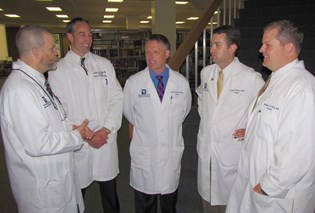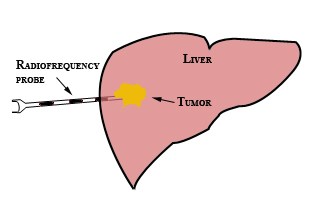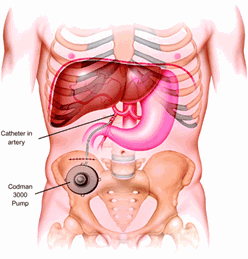Surgical Oncology
The section of oncologic surgery has advanced steadily over the years, supported by a long history of cutting-edge approaches to the treatment of solid tumors. The Oncologic Surgery faculty has frequently been the first in the state to introduce treatment modalities for complex surgical oncologic problems. Such was the case, for instance, with intra-arterial delivery of chemotherapy for patients with head and neck tumors, or the use of hyperthermic arterial infusions for melanoma, or the insertion of pumps in the hepatic artery to deliver chemotherapy to hepatic tumors.

Dr. Elmore, Dr. Dyer
Every week the section’s surgeons treat patients with tumors of the breast, thyroid, colon, rectum, pancreas, liver, melanoma, and many others. The expertise in the areas of hepato-biliary surgery has been enhanced with the recruitment of Michael Elmore, MD, a Surgical Oncologist who has rapidly taken charge of patients with liver and biliary tumors.
Dr. Michael Elmore is a surgical oncologist who specializes in surgery of hepatic and biliary tumors, many of which he approaches laparoscopically. Since he joined our department, he has successfully removed metastatic liver tumors using advanced techniques, such as Radio Frequency Ablation. When all tumor burden can thus be removed from the liver and treatment is coupled with chemotherapy, patients have a chance to survive that can be as high as 40% at 5 years, an outcome not commonly seen in years past.


The team of surgeons in this section consistently applies the latest technological advances used in surgery of solid tumors. Their outcomes in patients undergoing complex oncologic procedures are equal or better than the comparable reported national averages.
Leading this group is Ali AbuRahma, MD, FACS, an internationally known vascular surgeon, whose experience in vascular surgery has produced a large number of scientific research materials, now the basis of many of the therapeutic interventions in vascular surgery used worldwide. The center is co-directed by Dr. Mark Bates, an internationally known cardiologist who is frequently involved in complex endovascular reconstructions.
A Whipple procedure is an intricate and highly complex operation where the removal of a pancreatic tumor requires excising part of the stomach, the duodenum, the pancreas, the spleen and part of the small intestine, followed by a delicate and difficult reconstruction. This operation has been traditionally associated with a high rate of complications and mortality. The experts in this section have performed the last 19 Whipple procedures in patients in all age groups without a single mortality.